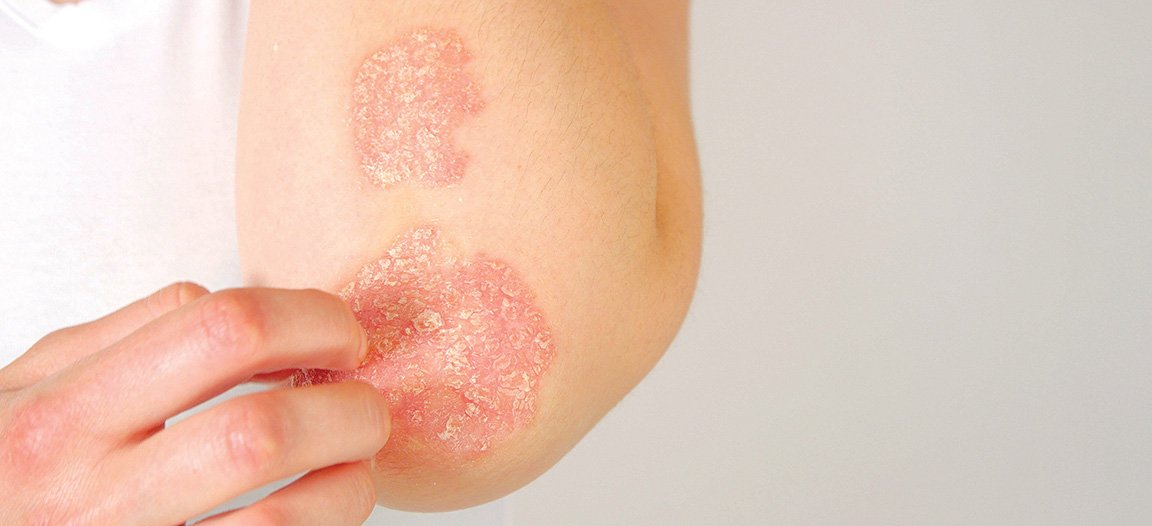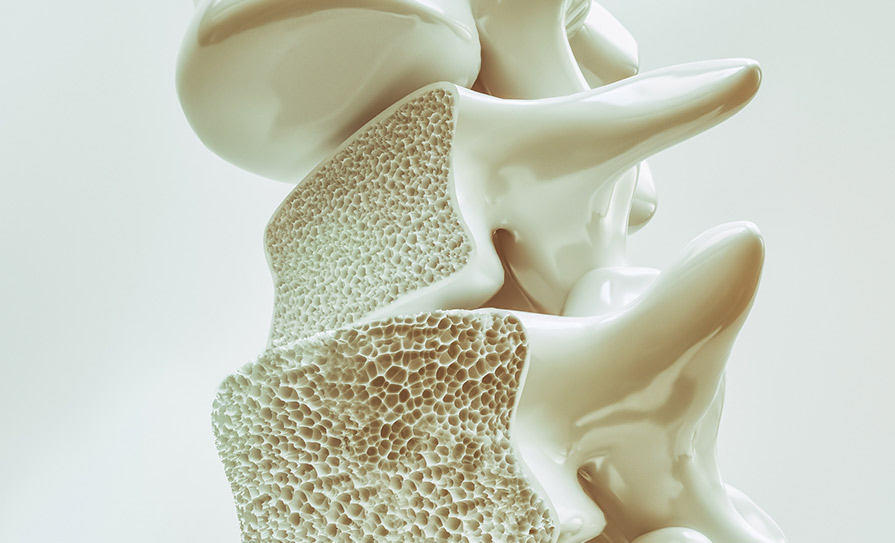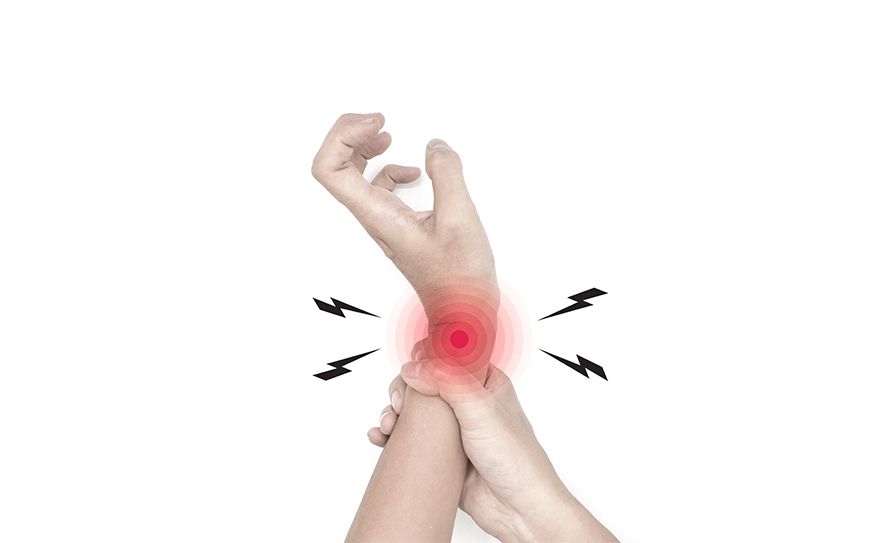Immunotherapy is an anti-cancer therapy that attempts to reactivate the patient’s own immune system to recognise and target cancer cells. Immunological agents frequently seen in practice are pembrolizumab, nivolumab, ipilimumab, durvalumab, and atezolizumab but there are many more in development. The growing use of immunotherapy has led to an increased frequency of novel toxicities known as immune-related adverse events (irAEs).
Immunological agents can result in a diverse range of toxicities that mimic autoimmune conditions and can affect any organ of the body. Common immune-driven inflammatory conditions include thyroiditis (inflammation of the thyroid), nephritis (inflammation of the kidney), hepatitis (inflammation of the liver), colitis (inflammation of colon) and pneumonitis (inflammation of lungs) (Figure 1 overleaf).
Delayed recognition of these toxicities can be life-threatening. The central management strategy is that of immunosuppression, most frequently with corticosteroids. However, inappropriate and excessive use of steroids in patients receiving immunotherapy may blunt and even negate the beneficial effects of these anti-cancer compounds. Thus, recognition of serious symptoms is essential to avoid unnecessary prescription of steroids in patients receiving immunotherapeutic agents.
It is important to note that side effects of immunotherapy can develop at any stage during treatment, even after many months of treatment and up to six months following discontinuation of the immunotherapy drug. It is important that GPs and other healthcare givers consider the potential for irAEs when considering new symptoms, even after immunotherapy has ended.
The severity of irAEs can be graded into mild (Grade I), moderate (Grade 2) and severe symptoms (Grade 3-4) and a broad generalised management algorithm is outlined in Figure 2 (overleaf).
Common irAEs and their management
Fatigue is the most common side effect experienced in patients on immunotherapy in up to 30-to-60 per cent patients. New-onset fatigue should always prompt investigations for immune-related thyroid dysfunction or hypophysitis (pituitary gland inflammation) with assessment of blood thyroid function tests (TFTs) and cortisol levels respectively.
Skin adverse events occur in approximately 40 per cent of patients treated with immunotherapy. It is often dry skin, often with pruritus, but maculopapular and other rashes are also common. Rashes involving less than 10 per cent of body surface area (BSA) should be treated with topical emollients and topical mild strength steroids. Topical or oral antihistamines can be added if itch is persistent and troublesome. More extensive rashes may require higher doses of topical corticosteroid creams and severe rashes require systemic corticosteroids and antihistamines. Oral steroids are commenced, only in conjunction with the treating oncology team, with a dose 0.5-1mg/kg once daily for three days then weaned over one-to-two weeks. Rarely, Stevens-Johnson syndrome (SJS), Toxic Epidermal Necrolysis (TEN) and bullous dermatitis occur and require hospitalisation with intravenous methylprednisolone 1-2mg/kg.
Autoimmune thyroid dysfunction is very common and accounts for up to 20 per cent of immune-related side effects. Under-functioning is more prevalent than over-functioning. TFTs are checked at baseline and monitored regularly. It is often asymptomatic, but fatigue, lethargy and classical hypothyroid symptoms can also be reported by the patients or identified on physical examination. For management please refer to Figure 3.
Inflammation of the liver (autoimmune hepatitis) can occur in up to 30 per cent of cancers treated with immunotherapy. It is usually asymptomatic through mandatory liver function test monitoring. If hepatitis develops, disease-related causes, particularly viral hepatitis, should be ruled out. Management begins with withholding the immunotherapy agent to allow time for recovery, but persistent or severe abnormalities require corticosteroids at a dose of 1mg/kg/day of methylprednisolone or equivalent. If worsening or no improvement occurs despite initiation of steroids, the corticosteroid dose should be increased to 2mg/kg/day. If there is still no response within two-to-three days, mycophenolate mofetil should be added at 1,000mg twice daily with urgent consultation with a hepatologist.
Diarrhoea can occur in up to 50 per cent of cancer patients treated with immunotherapy. Patients with underlying quiescent Crohn’s disease or ulcerative colitis can experience a flare-up on these agents. Onset of autoimmune colitis-related diarrhoea may occur at any time during the treatment or even months after discontinuation of immunotherapy. Other causes such as infections or tumour-related symptoms should be ruled out. Persistent symptoms should be investigated by flexible sigmoidoscopy or colonoscopy with biopsies along with abdominal imaging. Management again depends upon the severity but usually requires high-dose parenteral corticosteroids with slow tapering over one-to-two months once symptoms have settled. Intravenous infliximab can be used in steroid-refractory cases.
Any new respiratory symptom, including shortness of breath and dry cough, requires prompt investigation to formally exclude immune-driven lung toxicity in the form of pneumonitis. CT imaging of the thorax, often with high resolution, is required to confirm the diagnosis. Immunosuppressive treatment should be started immediately. Mild to moderate pneumonitis can be managed with oral prednisolone 1mg/kg daily and clinical assessment every two-to-three days. More severe pneumonitis (Grade 3 and 4) requires hospitalisation, intravenous high-dose steroid management and slow tapering over a four-to-six weeks period with re-introduction of immunotherapy when symptoms have resolved and prednisolone dose is less than 10mg/day.
There are some rare irAEs such as nephritis and neurological toxicity like Guillain-Barre, Myasthenia Gravis and a variety of neurological syndromes that could be attributed to immunotherapy. It is important to reiterate that immunological toxicities can affect any organ or system of the body. Management of these requires discussion with specialists in this area in conjunction with the treating oncologist. Again, immunosuppression is the backbone of therapy with varying success rates.
In summary
The side effects of immunotherapy agents are diverse and similar to autoimmune conditions. Early recognition is key to their successful management and require prompt initiation of corticosteroids with hospitalisation if necessary. Importantly, steroids may also minimise or prevent the beneficial anti-cancer effects and so should only be prescribed in partnership with the patient’s oncology team. IrAEs may develop at any stage throughout treatment including months after immunotherapy discontinuation and therefore should be considered in the differential diagnosis of new symptoms even after cessation of therapy.













Leave a Reply
You must be logged in to post a comment.